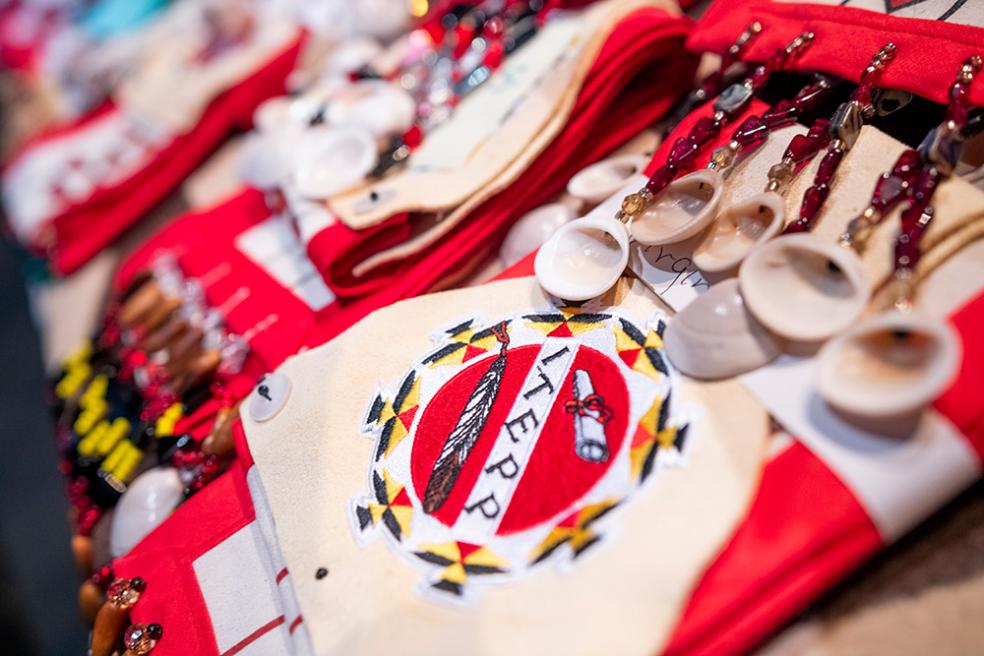
The Huwighurruk (pronounced hee-way-gou-duck) Tribal Health Postbaccalaureate Program seeks to enroll pre-med students passionate about providing health care to American Indian and Alaska Native communities in rural and urban areas.
In the Wiyot language, huwighurruk means plants, grass, leaves, and medicine. Huwighurruk scholars will be immersed in a culturally-focused framework intertwined with science courses at Cal Poly Humboldt. The program will provide eligible students with a stipend for living and tuition costs, including those associated with MCAT preparation, and mentorship with local Native physicians.
The hope is that once students graduate from the UC Davis School of Medicine, they’ll become doctors for Native American communities in rural and urban areas that are often medically underserved due to a lack of primary care physicians. According to research from the Association of American Medical Colleges, about 50% of Native American students who apply to a medical school are not admitted; and of that, 43% never apply again. Fewer than 1% of doctors in the United States are Native American.
The Huwighurruk program is the first postbaccalaureate program in thpe state aimed at helping Native American students in California get into medical school while keeping a focus on Tribal traditions and values through mentorships and connections.
“In Native culture, one of the most important things is community and connection, especially feeling that connection with your family and tribe. With Indigenous peoples, we talk about the Earth, the plants, and the medicine and ceremony. It’s that connection with Native culture and the sense of community itself that students can relate to through the Huwighurruk curriculum,” says Dr. Antoinette Martinez (‘94, Psychology), a Family Medicine/OB physician at United Indian Health Services in Humboldt County and co-director of Tribal Health PRIME for UC Davis School of Medicine.
Students who complete the year-long Huwighurruk program with a 3.7 GPA or higher, score 499 or higher on the MCAT, and complete all the prerequisite courses for the UC Davis School of Medicine will receive conditional acceptance into the school, with additional funding towards tuition.
“It’s tough to get into medical school. This program aims to break down the barriers associated with applying to medical school. It's disheartening to know that 43% of Native students never apply again, so we want to connect with those aspiring medical students to successfully recruit, retain, and train them to accomplish their goals,” Martinez says.
Martinez, along with Cutcha Risling Baldy, former chair of the Native American Studies department, will co-direct the Huwighurruk program. Biology Professor Amy Sprowles will assist with the program’s science courses. The Indian Teacher & Educational Personnel Program (ITEPP) will be the designated hub for the Huwighurruk program, which is set to begin next fall.
To apply, eligible students must be citizens or descendants of a federally recognized American Indian/Alaska Native Tribe or California Indian Roll of 1971, are residents of California, and have demonstrated a history of commitment to practice in the American Indian/Alaska Native community.
Huwighurruk is supported by a grant from the Northwest Native American Center for Excellence and funding from the UC Davis School of Medicine. In establishing the new program at Cal Poly Humboldt, UC Davis drew on its experience with a similar program called Wy’east Medicine, which is a partnership between Washington State University, Oregon Health & Science University, and UC Davis.
“We were thoughtful about choosing the right place for this program, where we knew students would be supported, where students would be able to engage with local tribes and community members, and where we would be able to come in and help support them as best we can in the building of the program. So we elected to do our program at Cal Poly Humboldt because of all the existing student resources and support,” says Charlene Green, assistant dean of admissions, outreach, and diversity at the UC Davis School of Medicine. “For us, it felt like the right decision.”
As an alumnus, Martinez attests to the excellent student resources and mentorship she received as a student at Humboldt.
“I credit Humboldt and ITEPP for supporting me through the process of completing my science coursework and believing that medical school admission was attainable. Without them, I might have given up,” Martinez said. “The connection to the ITEPP community and coursework on Native American issues helped me get through the pre-med coursework. The community and cultural integration at Humboldt are huge pluses for Huwighurruk students going through this process.”
UC Davis has been offering a successful post-baccalaureate premed program for years to assist college graduates from disadvantaged backgrounds in becoming more competitive applicants for medical school.
The Huwighurruk Postbacc Program team will be hosting a virtual informational session for special reapplicant sessions for medical school applicants on Monday, April 22, from 5-6 p.m. For more information about the Huwighurruk program, contact tribalhealth@ucdavis.edu.
The story has been updated to reflect the correct time of the April 22 information session, which will be held from 5-6 p.m.